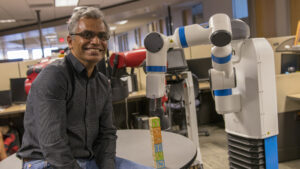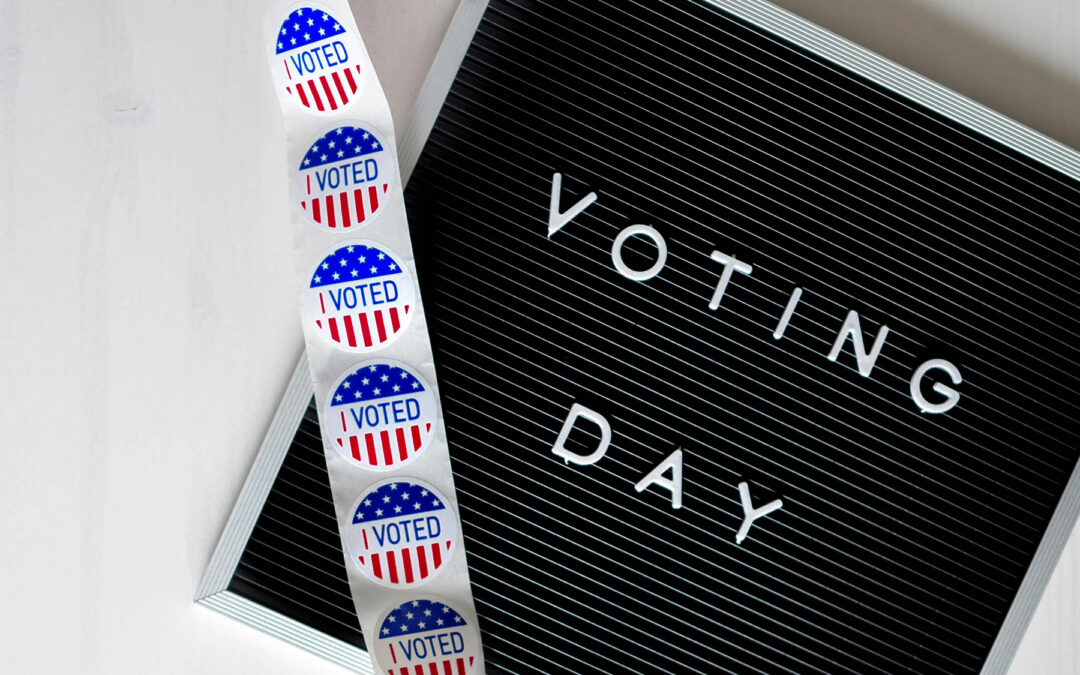Local and national media are sounding the alarm about the dangers of artificial intelligence, or AI-driven election misinformation and possible interference. Subbarao Kambhampati, a professor of computer science and engineering in the Ira A. Fulton Schools of Engineering at Arizona State University, discussed the issue on Arizona news outlet ABC 15.
Arizona Secretary of State Adrian Fontes told ABC’s Ben Brown that he is preparing for possible AI-driven election disruptions such as misleading ads using video and audio deepfakes, which use a type of artificial intelligence called deep learning to imitate a person’s voice and appearance.
Kambhampati, a faculty member in the School of Computing and Augmented Intelligence, or (SCAI), part of the Fulton Schools, has been raising awareness of AI-powered misinformation in a variety of media appearances.
“Although forgeries, fakes and spoofs have existed for much of human history, they had to be crafted manually … until now,” he writes for The Hill. “The advent of perceptual AI technology has considerably reduced the effort needed to generate convincing fakes.”
Election officials worry about fake videos, texts and phone calls impersonating a candidate to keep voters from making informed decisions.
“The advanced AI technology in deep-fakes and the ability to scale disinformation campaigns with the use of this technology is really much different than the previous cycles,” Chris Cummiskey, a former Arizona state senator, told ABC 15.
Kambhampati believes it is important to keep the public informed on misinformation created using AI tools.
“If people don’t know this is a possibility, they are going to be a lot more willing to just believe anything they see,” Kambhampati said. “So, public education, tabletop exercises … all those things are great.”
Fontes says such efforts to protect Arizona’s elections are underway. His office is developing methods to detect AI-powered misinformation in preparation for the presidential election in the fall.

Kambhampati at the AI Lab at ASU. Photographer: Marco-Alexis Chaira/ASU.
Kambhampati believes the biggest threat of deepfakes is not in the future, but rather in the present.
“The scary part of the deep-fake future is not the long term but the short term, before we outgrow our ‘seeing is believing’ mindset,” he says. “One consolation is that the short term may also be the only time when AI can still be an effective part of the solution to the problem it has wrought in this vulnerable period.”
Such solutions are in the works, like tools designed to embed credentials within media files and alert users when they have been altered and software that can identify deepfakes after they are made. However, even with these tools, Kambhampati says education is key to safeguarding elections.
“The biggest solution … is education,” he says. “Let people understand the days of trusting your ears and eyes are over, and you need to keep that in the back of your mind.”
Kambhampati’s next media appearance to discuss misinformation created using AI is on NPR’s 1A show on Thursday, Jan. 25.


